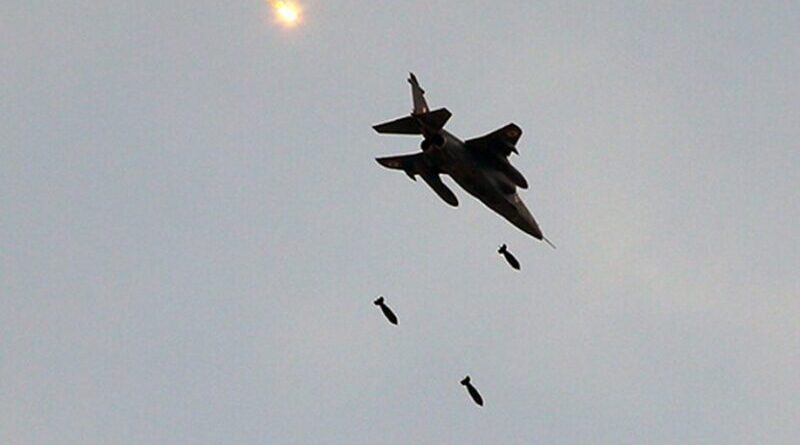Has The Pulwama Crisis Altered Strategic Dimensions? – Analysis
By IPCS
By Dr Shalini Chawla*
On 26 February, the Indian Air Force (IAF) targeted a Jaish-e-Muhammed (JeM) camp in Balakot in Pakistan’s Khyber Pakhtunkhwa (KP) province, after over 40 Central Reserve Police Force jawans were killed in Pulwama, Jammu & Kashmir (J&K), India, in a gruesome terror attack claimed by JeM. India’s ‘non-military preemptive action’ against the Jaish camp was aimed at countering future terror attacks for which the JeM was reportedly preparing. Pakistan denied its role in the Pulwama attack and took the position that no terror camps have been destroyed in KP. Pakistan retaliated with offensive air strikes in J&K, which Islamabad claimed were demonstrative strikes to indicate Islamabad’s capability and will to retaliate to India’s military actions. The air battle resulted in a loss of an F-16 for Pakistan, a MIG-21 for India and the arrest of an Indian pilot who was subsequently released by Pakistan after two days.
There have been speculations and political apprehensions regarding the IAF strikes at Balakot and on the actual number of terrorists killed. The IAF operation has been analysed at length in the media by political actors, analysts and retired servicemen. While these debates will continue for some time, there have been important developments in terms of India’s strategic and diplomatic gains that need to be understood irrespective of the actual numbers of JeM militants killed in the Balakot strikes.
India’s retaliation did challenge the Pakistani assumption and belief that New Delhi does not have the political will to react to the Pakistan-sponsored acts of terror. Pakistan’s confidence in its strategy to continue its proxy war without fear of Indian retaliation grew over time owing to multiple factors:
Firstly, Pakistan’s long-standing alliance with the US spanning the 1960s, 1980s and then post 9/11, strengthened Pakistan’s conventional capability and also allowed it to consistently take a position of denial for its proxy war through terrorism against India. It is noteworthy that the 26/11 attacks in Mumbai took place when the Pakistan-US alliance was at its peak and Islamabad was celebrating the dividends of freshly awarded Non-NATO ally status. India’s resistance and condemnation of the supply of high technology US equipment to Pakistan (including the F-16s and P3Cs) was disregarded in Washington. It was the killing of al Qaeda Chief Osama bin Laden in Abbottabad, Pakistan, that dealt a significant blow to American trust and military assistance to Pakistan.
Secondly, Pakistan’s growing relationship with China has significantly assisted its conventional and nuclear build-up. All-out Chinese assistance has reduced Pakistan’s reliance on Western powers and has allowed it to flex its muscles even in the wake of international pressure and criticism. There have been discussions on the probability of India facing a two front war with China supporting Pakistan in the wake of any Indian aggression. These apprehensions added to Pakistan’s assumption of New Delhi’s reluctance for not opting for a conventional response.
Thirdly, Pakistan has relied on its nuclear weapons capabilities to carry on terrorism and war prevention. In the past, the threat of nuclear weapons has been used rather conveniently and frequently by the Pakistani leadership during times of crisis. Pakistan claims to have attained a full spectrum deterrence with the induction of tactical nuclear weapons (TNWs) and acquisition of sea based deterrence. Policymakers in Pakistan seem to continue to be convinced that they will be able to carry on or rather accelerate their acts of terror in India with the threat of use of nuclear weapons.
India has demonstrated its resolve to retaliate militarily, using the strategic space above terrorism and below the nuclear threshold. Pakistan’s excessive reliance on the threat of use of nuclear weapons and its assertion on ‘first use’ grew with the growing asymmetries between India and Pakistan. Evidently, India has crafted a space for conventional war below the nuclear threshold. Pakistan has consistently projected an extremely low nuclear threshold, often with an irrational posturing for enhanced deterrence. The recent Indian response has demonstrably challenged Islamabad’s narrative of the nuclear threshold.
Over the past few years, at international platforms, India has called for isolating Pakistan to increase the cost of sponsoring terrorism for Islamabad. Undoubtedly, the regional and global response to the Pulwama attack has been in India’s support. All the major powers, including the US, Russia and the EU, condemned the attack and have expressed keenness to unite against terrorism. Even China maintained a neutral voice towards the Indian strikes in Balakot, though Beijing’s neutral stance is not essentially indicative of alteration in China’s posturing towards Pakistan’s strategic calculus. India was also welcomed as the guest of honour at the Organisation of Islamic Cooperation’s March 2019 summit despite strong objections by Pakistan.
Regardless of the debate on the number of JeM militants killed and the extent of damage caused by India’s punitive strikes, New Delhi’s strategic and diplomatic gains are clear: 1) Pakistan’s assumption of India’s weak political will to react has been challenged; 2) Pakistan’s projection of low nuclear threshold has been questioned; and 3)Global support for New Delhi and low tolerance for terrorism strengthens India’s position.
*Dr Shalini Chawla is a Senior Fellow at the Centre for Air Power Studies in New Delhi, India.

